I can’t breathe: feeling suffocated by the polite racism in Canada’s graduate schools
Only through our collective efforts to recruit and retain Black and racialized faculty members can we fully ensure the success of Black and racialized students in higher education.
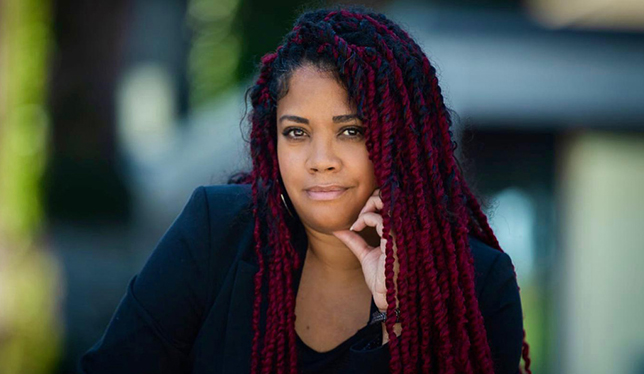
For some of my peers and colleagues, the last few months have been their first exposure to racial protest and the civil rights movement. However, as a woman of Caribbean descent, these ideas are nothing new. I have personally witnessed and experienced various forms of racial discrimination, racial stereotypes and social categorizations. I began a PhD in sociology as a means to better understand why so many people in my life have “other’d” me, (mis)categorized me, or labeled me as not a “real Canadian,” challenging me to explain my heritage.
As September 2019 rolled around and I began graduate school, I was eager to start this new journey, invested in succeeding in my courses and enthusiastic to pursue my research interests. However, as the first semester progressed, I began to realize that my graduate school environment was ill-suited to helping me better understand the questions I was trying to answer.
First and foremost, I observed a glaring disconnect between the student body and members of the faculty. I was one of a few Black graduate students being taught by many white professors. Despite a larger Black student body at the undergraduate level, I could see our dwindling numbers as I looked up the organizational hierarchy. I, yet again, felt alone – alone in my thinking, alone in my academic journey, alone in my research vision.
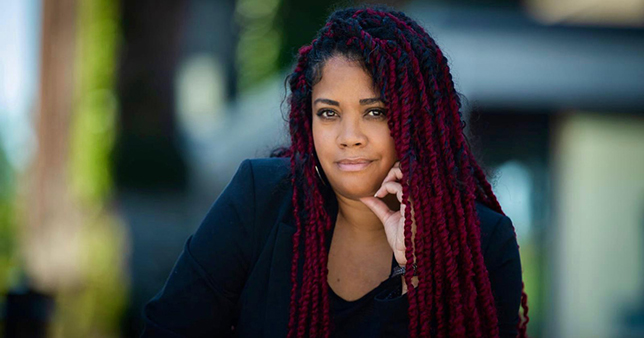
Galvanized by this desire not to feel alone, I conducted a survey of 76 racialized students and administered a series of panel discussions for Black, Indigenous and other students of colour, led by me and other BIPOC students. My objective was to provide a safe space and the opportunity for racialized students to express their thoughts and experiences in postsecondary institutions.
What I found was that I was not alone. Many of us had received messages that we shouldn’t question the racism that was targeted towards us. Many of us had been told to minimize our experiences, to avoid conflict, to see our stories as an exaggeration of reality. We weren’t believed if others around us “didn’t notice” or “weren’t a direct witness to it.” If we got angry or frustrated at not being believed, we were admonished not to take it so personally.
I was not alone in feeling like I couldn’t breathe, that I was being suffocated by white supremacy, through condescending and sarcastic remarks when discussing anti-Black racism in Canada. Our survey found that 47 percent of respondents reported having experienced racism during their postgraduate studies and 65 percent reported being unsure if their academic institution has a formal reporting mechanism for incidences or acts of racism. Indeed, when asked if they ever reported an incidence of racism, 94 percent responded no! Students felt that reporting racism “causes more repercussions/problems” or is “pointless.”
These results disturbed me and indicated a need for action. I decided to create an anti-racism committee for graduate students in the faculty of social sciences and I called on my department to address racism in our classes and on our campus. For example, I worked to create an obligatory inclusivity statement for the faculty to include in all course syllabi.
What has been particularly frustrating in this work is the “polite racism” so typical of Canada. Yes, Canada has always provided the image of being at the forefront of liberal immigration laws and the promotion of multiculturalism. However, there is a lack of discussion of institutional racism and how it is so very polite in Canada.
Although Canadian racism may not be as explicit as that of our neighbors to the south, the learned racism here often consists of psychological gaslighting by denying the experiences of racialized people of being ignored, overlooked or undervalued with a smile. These experiences are continuations of our time in the public-school system. Author Robyn Maynard, in her 2017 book Policing Black Lives: State Violence in Canada from Slavery to the Present, has drawn telling connections between institutionalized racism in Canadian policing and the treatment of Black students within the educational system: ‘‘Black students are portrayed as potential criminals instead of children being nurtured’’ (pg 230).
I was particularly disappointed by those in my discipline of sociology who seemed unable to apply the tools of the discipline to decode and reflect upon the issue of racism on their own campus in the way they applied their sociological lens to more distant social issues. I entered my doctoral program to submerge myself in the body of knowledge that emerges from research in order to work to shape a better society. Evidently the aforementioned would be onerous to accomplish with a lack of sociological reflexivity and inclusivity, uniformed curriculum violence, white supremacy and anti-Blackness epistemic. Social inequalities are maintained as the status quo and are embedded in institutions of higher learning. How can this be rooted out if our sociological imaginations refuse to look?
Only through our collective efforts to recruit and retain Black and racialized faculty members can we fully ensure the success of Black and racialized students in higher education. We must decolonize the teaching of social theory and research methods, and develop training and protocols for increasing anti-racist awareness. But, ensuring that this training endures requires that people with “skin in the game” be in positions of power that will see that it happens.
These issues are not unique to my department or university, however; racism in Canada is ubiquitous. As lawyer Hadiya Roderique wrote in an article in the Globe and Mail in 2017, Black Canadians need more experience to be seen as equally qualified as their white peers. As she writes, “companies say they want diverse candidates, but the numbers don’t bear the claims out.”
Sociological theorizing can help explain these patterns as being partly formed by collective memory. In 1950, sociologists Robert Merton and Paul Lazersfeld coined the term homophily – a “pervasive tendency of people to associate with others who are similar to themselves” (pg. 22). It is the notion that people consciously or subconsciously gravitate to others who share similar educational backgrounds, social class and economical status. Homophilous relationships can be easily observed in many different social structures/institutions. If people tend to gravitate towards people they feel are more like themselves, how is the growing body of racialized students to find support and supervisors when the professoriate is disproportionately White? How can we begin to break through homophily if racism remains hidden behind a veneer of Canadian politeness, and if academic institutions fail to turn research findings of their own departments onto themselves?
By openly sharing our experiences, BIPOC students are growing a space for collaboratively addressing racism in all our spheres of influence – starting from within our departments and disciplines. Those who are dedicated to anti-racist work must continue to listen and to work collaboratively to deconstruct the social structures of whiteness and white supremacy that normalize the suffering of racialized people. Ideally, we must challenge and unscramble anti-racism to reinforce policies and structures in our universities, in our teaching, and in our research, in order to promote the need for systemic change. I no longer want to be the subject of racism; I want to be a bridge that connects two different worlds and two different realities to one common thread of social being.
Karine Coen-Sanchez is a PhD student in sociology at the University of Ottawa. She would like to recognize Mona El-Mowafi and Phyllis L. F. Rippey for providing valuable feedback on this article.
Featured Jobs
- Political Science - Assistant Professor (Political Theory)Saint Mary's University
- Education - Assistant Professor (Distance Education)University of Toronto
- Science - Assistant Professor (Teaching)The University of British Columbia
- Canada Excellence Research Chair in Forest Biodiversity Conservation (Full Professor)University of New Brunswick
- Canadian Politics - Assistant ProfessorUniversity of Toronto


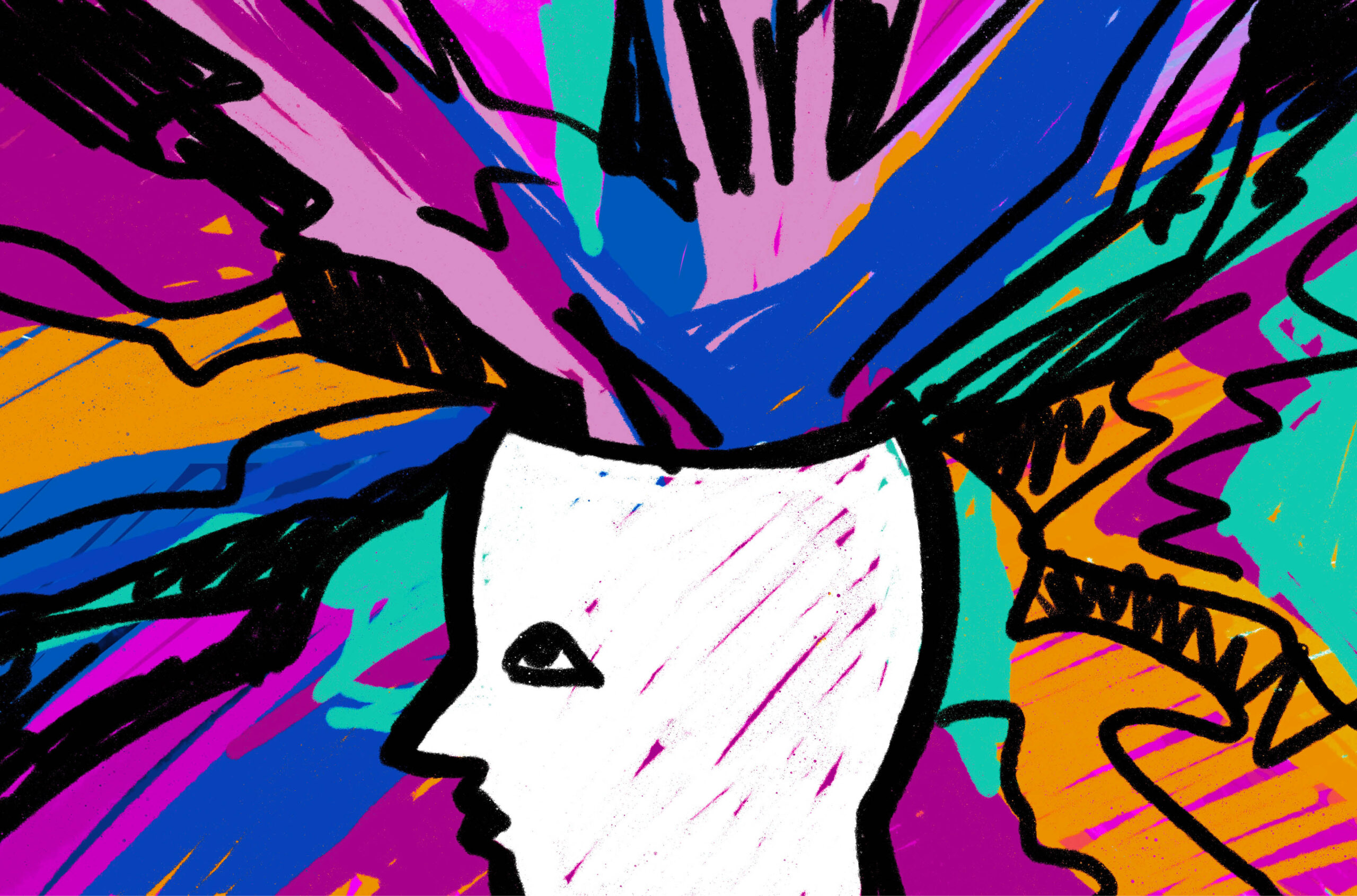




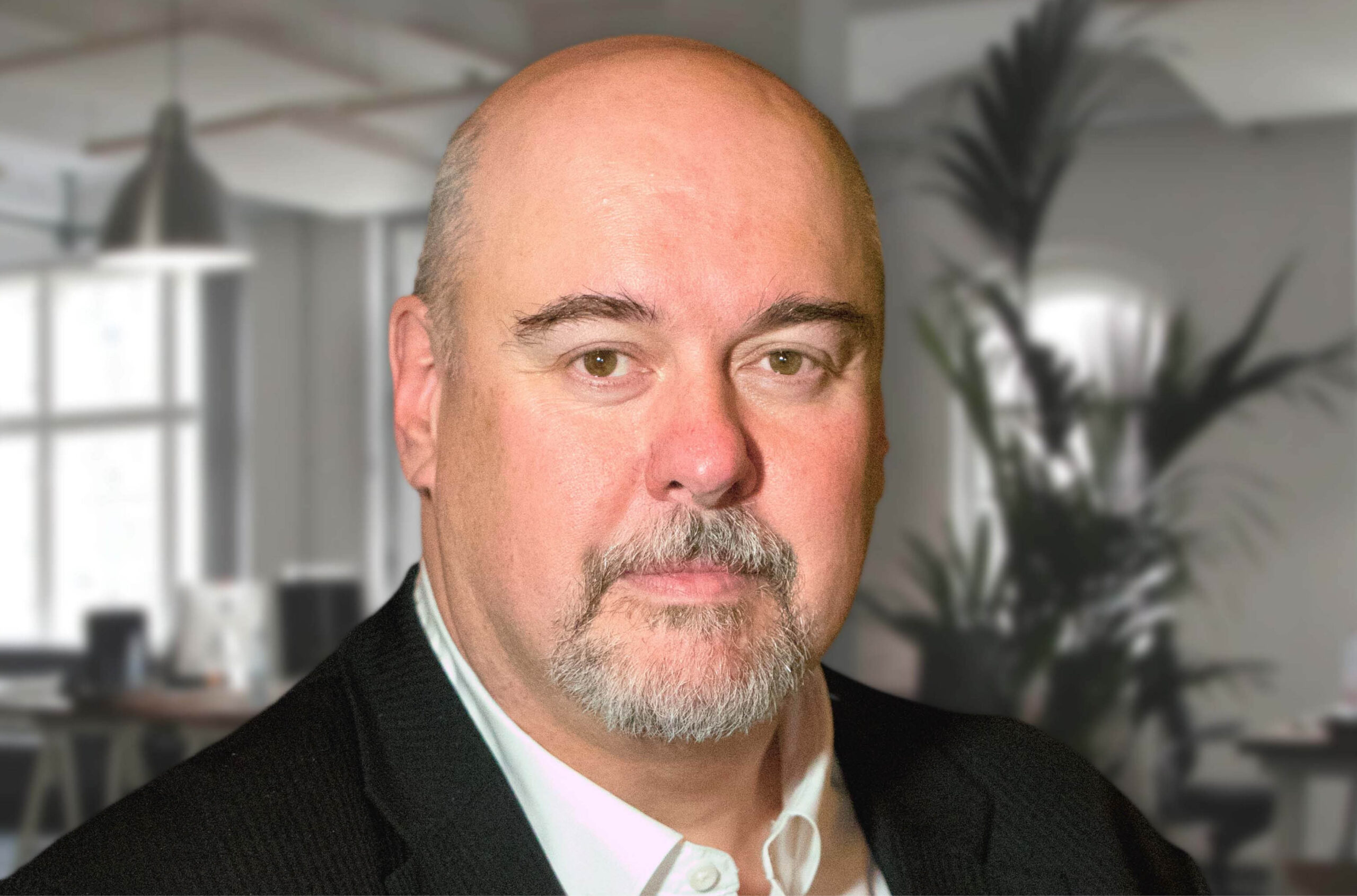
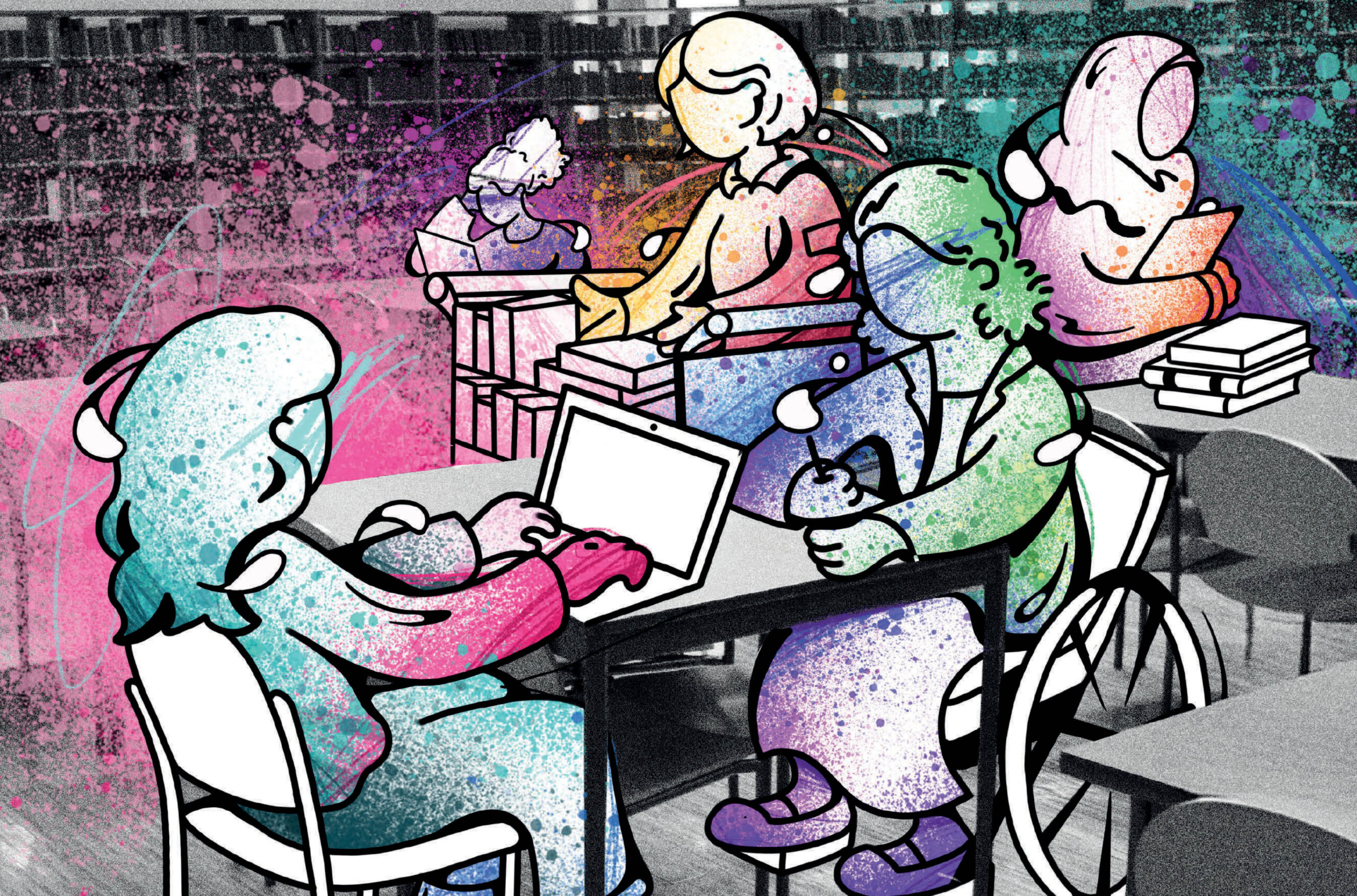



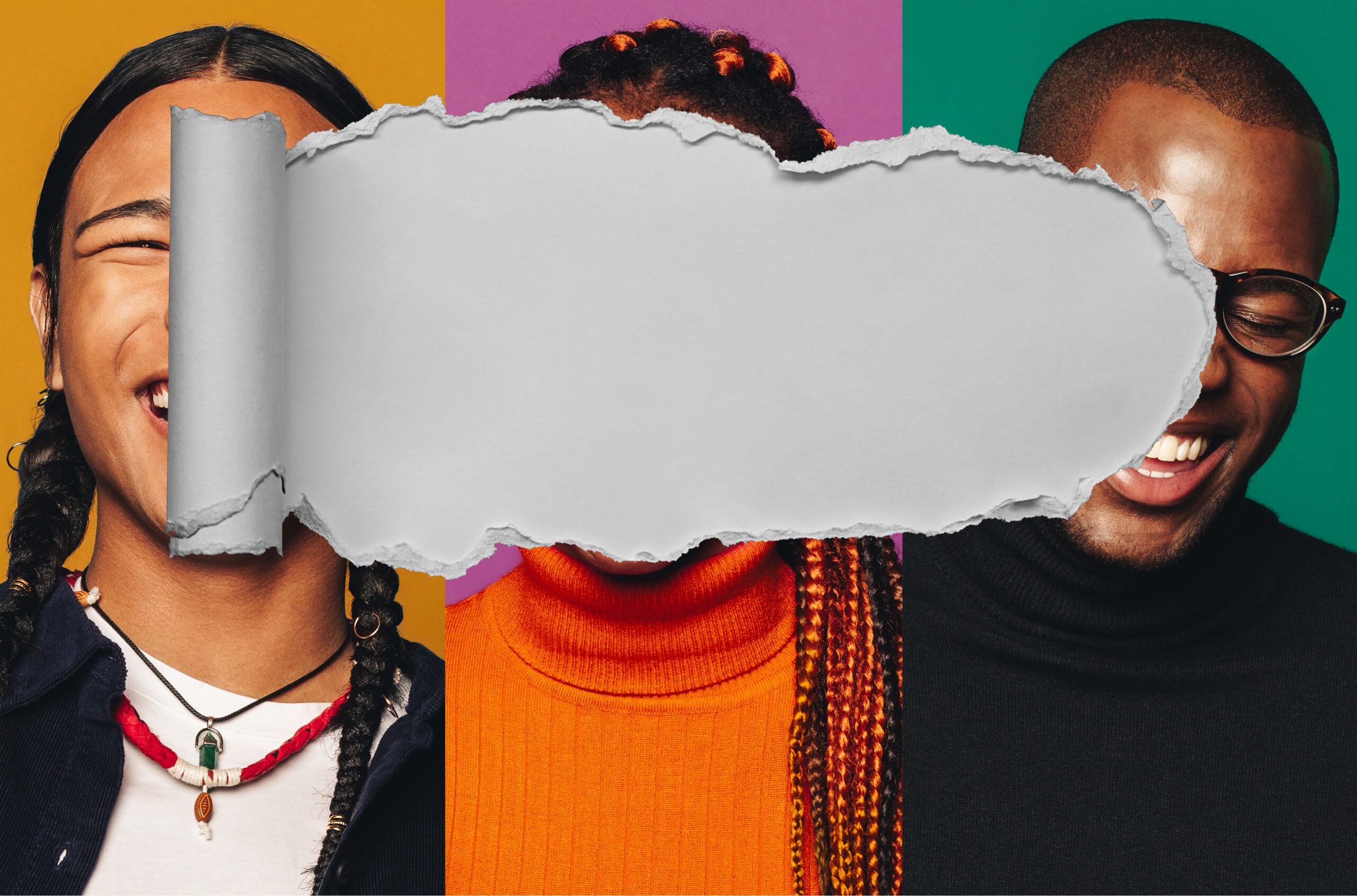
Post a comment
University Affairs moderates all comments according to the following guidelines. If approved, comments generally appear within one business day. We may republish particularly insightful remarks in our print edition or elsewhere.
21 Comments
Karine Coen-Sanchez has captured the loneliness we faced daily by the Polite Racism which smothered us by a system that refused to
recognize US.
I have had similar experiences at my post secondary institution it takes a lot of courage to speak up especially in Canada as the racism is so subdued. I am happy to see that i am not alone in my academic journey, thank you for such a great article
WOW Well crafted – I am truly impressed – how much psychological and sociological implication racism has and how Karine detailed this in her article, this is a real reality for our community and conversations like this should be made more public, thank you for first publishing this article and thank you Karine for discussing this very real issue that impact the entire BIPOC community
Thank you Karine for writing this much needed article. It resonated deeply with me. I am currently enrolled at a university in BC. Sadly, I too am immersed in a university culture of polite-lack-of-responses to racism, to which I’ll be unapologetic for defending myself and others.
I am honestly emotional right now, reading this article, as a white anglo saxon women I am in a position of privileged in some ways and recognize that, I am able to sympathize with other racialized women to a certain limit, I appreciate the content in which Karine acknowledges our lack of understanding as we experience the world from a completely different perspective. The fact that this article is not an attack it is more of an sociological approach is very uplifting. Thank you Karine!
Beautifully written and enlightening article. Thank you for writing this Karine!
I too, as a person of colour living and working in Canada, long for the day when this passive aggression towards black, indigenous and other people of colour would disappear down the drain and people begin to understand that appearance and skin colour doesn’t determine anything else except the level of melanin in our skin. Slavery days are long gone and so should be slavery mentally. We are living in a civilized world and it is pretty easy to understand that blood as one colour but different genetic makeup.
White, yes white, indigenous, people of colour, let us rise up and dismantle white supremacy, racism, ageism, and sexism from kindergarten to university.
My four year old son was told by his classmate that his skin is not liked and I got told by a nine year old this summer and I quote: “I dont like black people”. So don’t be fooled that the youngest ones in schools are not bathed in this contaminated water of racism. Hence, we need to take the bull by the horn and act now to break the wall of partition between white and people of clour. I will qoute the motto of my country of birth as this should be a world motto, “Out Of Many One People”. Let’s do our part today for a better future for our grandchildren.
Thank you Karine for this stimulating article. I noticed that you mentioned you had worked to create an obligatory inclusivity statement for the faculty to include in all course syllabi. Is it possible to obtain a copy of this?
Well written article, throwing light on the current reality. Kudos to you Karine, Mona and Phyllis. Sadly, mostly only a lot of ‘talk’ happens or when this is brought up, simply the university administrators brush it off. Having experienced racism at first hand, I can feel the pain and agony and fully resonate with this article. It is a pity that the university higher administration does not appear to walk the talk or only perform lukewarm, namesake actions in the form of committees.
Great work Karine! Being indigenous in Canada means understanding how it feels to be “suffocated” by racism. Its amazing the change and unity seen today. I did not believe I would live to see this in my life time. Great work, great article Karine.
Fight the power ✊
Karine, I really appreciated this piece as I think it speaks to some inherent problems in academia and the fact that many people in it would like to be socially aware, but are relatively sheltered and ignorant of people with different lived experiences. First, I disagree that this is a matter of Canadian polite racism (I grew up around Canadians who were far from polite in their discrimination towards others) and would argue that it is rather polite upper middle class racism. I was raised in a low-income white family and have felt similarly frustrated by the ignorance (often well-meaning, but sometimes in very twisted ways) and discomfort with people who do not carefully construct themselves to match the prevailing culture. I will frankly say that it is not just those who are racialized that suffer. This is not meant to in any way discount your experience as a racialized person, because it is not my lived experience and I realize that there are elements to this experience that I can not understand. I would like to point out, however, that classism is extremely prevalent, especially for those who are less successful in shaping their world views to exactly mirror those of their colleagues. My experience is that this type of discrimination is typically not even remotely polite – never cloaked behind polite, uncomfortable social niceties. It is blunt and sometimes vitriolic. Whatever their background, faculty who don’t fit in, if they get jobs, often fail to get tenure no matter how impressive their achievements. Individuals who challenge prevailing stereotypes or deplorable behaviour are marginalized and identified as “trouble makers,” although how they are problematic is seldom described. I often describe the current movement towards diversity as “Barbie-doll” diversity – it is okay if you put different hair, body shape, or clothes on the person but they still need to be a Barbie. As a white person, I honestly don’t know how this plays out for racialized peoples and will not try to pretend that I do. From my perspective, I am hoping that the push towards diversity will still end up creating meaningful change, not only because we need more racial diversity in universities, but because we need (in my opinion, more than anything else) a diversity of cultures, opinions, and lived experiences in the universities. I hope that we will end up with people who are not just faculty Barbies, but people who are ethical, thoughtful, and outstanding mentors. People who think and act differently than their colleagues and will be equally willing to help racialized and all other students succeed. People who don’t politely discriminate against others for any reason – sex, race, class, opinion, identity, etc. Only then will we start to see a more meaningful diversity at all levels of the university. I wish you good luck and strength in your journey and hope that you will be one of the good ones who can make a positive change in a truly more inclusive environment.
You have written a truly eloquent article which lends to your educational journey! What you have and is still experiencing is sad to say nothing new. Generations of people of color have had the same experiences but have not had the platform such as yours to write about it.
The fight continues to be included without reprisal and find that very voice to speak up on racism by the intricacy of every stitch which was used by others to be woven into the very fabric of our society.
Your words matter!
Diversity claims are only promoted at job advertisements. A Ph.D from McGill University and publications in reputed international and Canadian journals did not help me in finding any job (academic and non-academic) in Canada. Apart from wearing a hijab and a career break for family reasons, I was not able to find any rational connection to my failures! Racism is not polite… it affects real lives and livelihoods.
It’s polite compared to the U S in fact it’s covert racism I would describe it, and I think that’s the exact message Karine is eluting in this article. If we do not hire more racialized people we will never have opportunities, despite our qualifications, it’s a sort of glass ceiling effect. I think you are saying the same thing!
You are right about this. Racism is far more insidious. It is affecting real lives, employment and survivability. Thousands of applicants are openly discriminated against behind closed doors simply because of the colour of their skin, their name, their religious beliefs and affiliation. It means that they are denied opportunities to earn a living even when being equally qualified and at times, even more so than others. It is prevalent in academia, the very place that we are supposed to question bias and do something about it. For minority students, the battle is not only in graduate school, where your abilities are subtly and not so subtly questioned by white men and women, it follows you into the job market. Their diversity claims on job advertisements mean nothing. They have no interest in practicing what they preach.
I am Indigenous Canadian from small town of Harrow, Ontario. I grew up in a highly racist town and attended a segregated school at primary level.
I attended Fanshaw College in London, Ontario. When I graduated I thought I would get a job in the government but every interview ended with a “no we don’t hire people like you”. I have so much more to say here but I don’t think there is enough space.
Canadian racism is like the slow hiss of toxic gas whereas American racism is an explosion. The notion of Canadians as being “polite”, “friendly” is a national brand invented for international PR purposes but the reality is that Canada is lethally racist, it just does a better job of hiding it.
Canada is a very small country and the majority of the social institutions are occupied by (racist) white people who have never had the level of engagement with racism that white people in the US have had. Canada has a long way to go to simply acknowledge its racism and without that acknowledgement there can never be a real reckoning. The prairie provinces are the worst – Colten Boushie’s murderer walked free, acquitted by a “jury of his peers” all of whom were born and raised and weaned on toxic, weaponized whiteness. The murderer was not even found guilty of manslaughter and walked on the other charges. The message: white people hate “indians” and will forsake morality and ethical clarity to serve the racist agenda of keeping “indians” subjugated to an obsolete colonial mentality.
Thanks for sharing your reflections and your work on this! As a faculty member of Asian Caribbean ancestry who lived worked and studied for a decade in Ottawa I hear/feel much of what you are saying. I hope your department appreciates your efforts, and works with you and the other BIPOC students struggling to carve out institutional space. As you rightly put it, the logic of doing so is implicitly part of the discipline yet only seems to be applicable “far away”
Karine has expressed the real experiences in polite Canadian society. I could recognize these types of experiences in university. When I arrived in Canada in the 1950s Italians were regarded as not completely white. It took many years for us to pass as white. Many different people can be racialized and so we should all be more aware of polite exclusion in Canada. And we should act when we can.
Dear Karine,
Our law school is interested to hear more about this issue. Could you please tell me how I can get in touch with you? Thank you very much.
Tanya Krupiy
I feel alone. I am an overqualified French teacher in NS. I suffered from racism, xenophobia and discrimination in my workplace. I spoke up (after dealing with all this for many years). Now I am at home crying every single day. I feel inferior and not useful in my new country. Is there any association to support me?